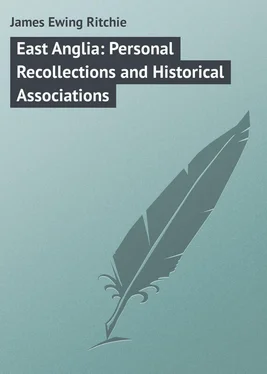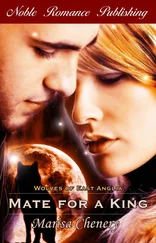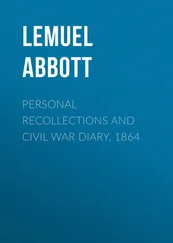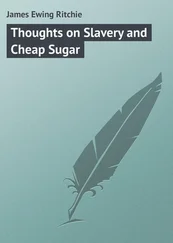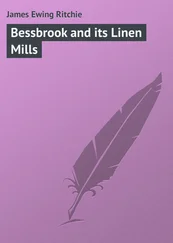James Ritchie - East Anglia - Personal Recollections and Historical Associations
Здесь есть возможность читать онлайн «James Ritchie - East Anglia - Personal Recollections and Historical Associations» — ознакомительный отрывок электронной книги совершенно бесплатно, а после прочтения отрывка купить полную версию. В некоторых случаях можно слушать аудио, скачать через торрент в формате fb2 и присутствует краткое содержание. Жанр: foreign_prose, на английском языке. Описание произведения, (предисловие) а так же отзывы посетителей доступны на портале библиотеки ЛибКат.
- Название:East Anglia: Personal Recollections and Historical Associations
- Автор:
- Жанр:
- Год:неизвестен
- ISBN:нет данных
- Рейтинг книги:5 / 5. Голосов: 1
-
Избранное:Добавить в избранное
- Отзывы:
-
Ваша оценка:
- 100
- 1
- 2
- 3
- 4
- 5
East Anglia: Personal Recollections and Historical Associations: краткое содержание, описание и аннотация
Предлагаем к чтению аннотацию, описание, краткое содержание или предисловие (зависит от того, что написал сам автор книги «East Anglia: Personal Recollections and Historical Associations»). Если вы не нашли необходимую информацию о книге — напишите в комментариях, мы постараемся отыскать её.
East Anglia: Personal Recollections and Historical Associations — читать онлайн ознакомительный отрывок
Ниже представлен текст книги, разбитый по страницам. Система сохранения места последней прочитанной страницы, позволяет с удобством читать онлайн бесплатно книгу «East Anglia: Personal Recollections and Historical Associations», без необходимости каждый раз заново искать на чём Вы остановились. Поставьте закладку, и сможете в любой момент перейти на страницу, на которой закончили чтение.
Интервал:
Закладка:
Nor was it only piety that existed in this distant parish. If the reader turns to the diary of John Evelyn, under the date of 1679, he will find mention made of a child brought up to London, ‘son of one Mr. Wotton, formerly amanuensis to Dr. Andrews, Bishop of Winton, who both read and perfectly understood Hebrew, Greek, Latin, Arabic and Syriac, and most of the modern languages, disputed in divinity, law and all the sciences, was skilful in history, both ecclesiastical and profane; in a word, so universally and solidly learned at eleven years of age that he was looked on as a miracle. Dr. Lloyd, one of the most deep-learned divines of this nation in all sorts of literature, with Dr. Burnet, who had severely examined him, came away astonished, and told me they did not believe there had the like appeared in the world. He had only been instructed by his father, who being himself a learned person, confessed that his son knew all that he himself knew. But what was more admirable than his vast memory was his judgment and invention, he being tried with divers hard questions which required maturity of thought and experience. He was also dexterous in chronology, antiquities, mathematics. In sum, an intellectus universalis beyond all that we reade of Picus Mirandula, and other precoce witts, and yet withal a very humble child.’ This prodigy was the son of the Rev. Henry Wotton, minister of Wrentham, Suffolk. Sir William Skippon, a parishioner, in a letter yet extant, describes the wonderful achievements of the little fellow when but five years old. He was admitted at Katherine Hall, Cambridge, some months before he was ten years old. In after-years he was the friend and defender of Bentley and the antagonist of Sir William Temple in the great controversy about ancient and modern learning. He died in 1726, and was buried at Buxted, in Sussex. It is clear that there was no such intellectual phenomenon in all London under the Stuarts as that little Wrentham lad.
Of that village, when I came into the world, my father was the honoured, laborious and successful minister. The meeting-house, as it was called, which stood in the lane leading from the church to the highroad, was a square red brick building, vastly superior to any of the ancient meeting-houses round. It stood in an enclosure, one side of which was devoted to the reception of the farmers’ gigs, which, on a Sunday afternoon, when the principal service was held, made quite a respectable show when drawn up in a line. By the side of it was a cottage, in which lived the woman who kept the place tidy, and her husband, who looked after the horses as they were unharnessed and put in the stable close by. The backs of the gigs were sheltered from the road by a hedge of lilacs, and over the gateway a gigantic elm kept watch and ward. The house in which we lived was also part of the chapel estate, and, if it was a little way off, it was, at any rate, adapted to the wants of a family of quiet habits and simple tastes. On one side of the house was a water-butt, and I can well remember my first sad experience of the wickedness of the world when, getting up one morning to look after my rabbits and other live stock, I found that water-butt had gone, and that there were thieves in a village so rural and renowned for piety as ours. I say renowned, and not without reason. Years and years back there was a pious clergyman of the name of Steffe, who had a son in Dr. Doddridge’s Academy, at Daventry, and it is a fact that the great Doctor himself, at some time or other, had been a guest in the village.
In 1741 the Doctor thus records his East Anglian recollections, in a letter to his wife: ‘You have great reason to confide in that very kind Providence which has hitherto watched over us, and has, since the date of my last, brought us about sixty miles nearer London. From Yarmouth we went on Friday morning to Wrentham, where good Mrs. Steffe lives, and from thence to a gentleman’s seat, near Walpole, where I was most respectfully entertained. As I had twenty miles to ride yesterday morning, he, though I had never seen him before last Tuesday, brought me almost half-way in his chaise, to make the journey easier. I reached Woodbridge before two, and rode better in the cool of the evening, and had the happiness to be entertained in a very elegant and friendly family, though perfectly a stranger; and, indeed, I have been escorted from one place to another in every mile of my journey by one, and sometimes by two or three, of my brethren in a most respectful and agreeable manner.’ Dr. Doddridge’s East Anglian recollections seem to have been uncommonly agreeable, owing quite as much, I must candidly confess, to the presence of the sisters as of the brethren. Writing to his wife an account of a little trip on the river, he adds: ‘It was a very pleasant day, and I concluded it in the company of one of the finest women I ever beheld, who, though she had seven children grown up to marriageable years, or very near it, is still herself almost a beauty, and a person of sense, good breeding, and piety, which might astonish one who had not the happiness of being intimately acquainted with you.’ What a sly rogue was Dr. Doddridge! How could any wife be jealous when her husband finishes off with such a compliment to herself?
But to return to the good Mrs. Steffe, of whom I am, on my mother’s side, a descendant. I must add that as there were great men before Agamemnon, so there were good people in the little village of Wrentham before Mrs. Steffe appeared upon the scene. The Brewsters, who were an ancient family, which seems to have culminated under the glorious usurpation of Oliver Cromwell, were eminently good people in Dr. Doddridge’s acceptation of the term, and I fancy did much as lords of the manor – and as inhabitants of Wrentham Hall, a building which had ceased to exist long before my time – to leaven with their goodness the surrounding lump. It seems to me that these Brewsters must have been more or less connected with Brewster the elder – of Robinson’s Church at Leyden, who, we are told, came of a wealthy and distinguished family – who was well trained at Cambridge, and, says the historian, ‘thence, being first seasoned with the seeds of grace and virtue, he went to the Court, and there served that religious and godly Mr. Davison divers years, when he was Secretary of State, who found him so discreet and faithful as he trusted him, above all others that were about him, and only employed him in matters of great trust and secrecy; he esteemed him rather as a son than a servant, and for his wisdom and godliness in private, he would converse with him more like a familiar than a master.’ When evil times came, this Brewster was living in the big Manor House at Scrooby, and how he and his godly associates were driven into exile by a foolish King and cruel priests is known, or ought to be known, to everyone. Of these Wrentham Brewsters, one served his country in Parliament, or I am very much mistaken. It was to their credit that they sought out godly men, to whom they might entrust the cure of souls. In this respect, when I was a lad, their example certainly had not been followed, and Dissent flourished mainly because the moral instincts of the villagers and farmers and small tradesmen were shocked by hearing men on the Sunday reading the Lessons of the Church, leading the devotions of the people, and preaching sermons, who on the week-days got drunk and led immoral lives. As to the right of the State to interfere in matters of religion, as to the danger to religion itself from the establishment of a State Church, as to the liberty of unlicensed prophesying, such topics the simple villagers ignored. All that they felt was that there came to them more of a quickening of the spiritual life, a fuller realization of God and things divine, in the meeting-house than in the parish church. They were not what pious Churchmen so much dread nowadays – Political Dissenters; how could they be such, having no votes, and never seeing a newspaper from one year’s end to the other?
Читать дальшеИнтервал:
Закладка:
Похожие книги на «East Anglia: Personal Recollections and Historical Associations»
Представляем Вашему вниманию похожие книги на «East Anglia: Personal Recollections and Historical Associations» списком для выбора. Мы отобрали схожую по названию и смыслу литературу в надежде предоставить читателям больше вариантов отыскать новые, интересные, ещё непрочитанные произведения.
Обсуждение, отзывы о книге «East Anglia: Personal Recollections and Historical Associations» и просто собственные мнения читателей. Оставьте ваши комментарии, напишите, что Вы думаете о произведении, его смысле или главных героях. Укажите что конкретно понравилось, а что нет, и почему Вы так считаете.
